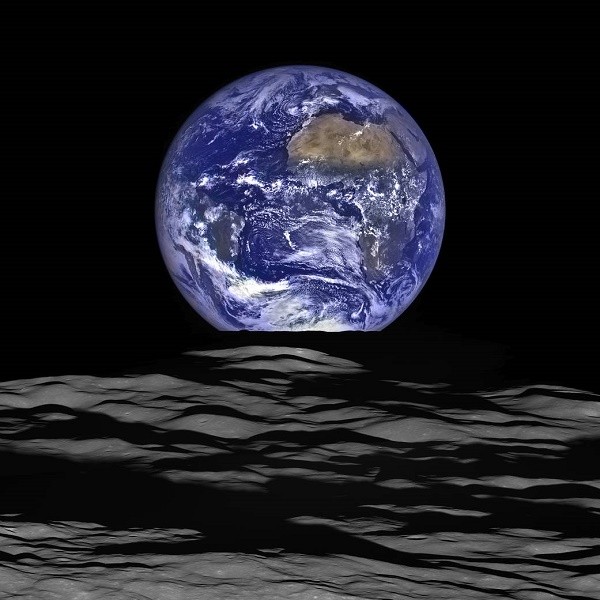Only a few lucky humans would ever see the Earth rise from the moon's view, such as Apollo astronauts however, for the first ever, a robotic spacecraft captured this new breathtaking "Earthrise" photo, revealing a remarkable view of our planet.
To date, NASA's Lunar Reconnaissance Orbiter is circling around the moon where NASA released this composite image on Friday that showed a bright Earthrise from the orbiter's vantage point. Africa and South America continents are seen among clouds swirling above them.
According to NASA's Noah Petro, a project Scientist for the LRO of NASA's Goddard Space Flight Center, this striking image of Earth also evokes the famous "Blue Marble" photograph taken by astronaut Harrison Schmitt during the Apollo 17 mission some 43 years back, with the continent of Africa also on the image.
This image is created using a series of images that were captured on October 12 where the orbiter was just located some 83 miles above the moon's surface, particularly on its far side for the first time ever. NASA scientists reveal how challenging it was to capture an Earthrise since it requires some strategic maneuvers.
According to NASA scientists, the orbiter was rolled to the side at an angle of 67 degrees where the spacecraft had to fly in this direction to travel the lunar horizon, to maximize the width for the LROC's Narrow Angle Camera image.
The orbiter possesses onboard cameras that are capable of taking black and white images and lower resolution color images. Using data from both cameras, a high resolution color image was produced and released by NASA.
This latest image is the most vivid ever captured but not the first one ever captured. In 1966, NASA's Lunar Orbiter 1 captured a view of the Earth rising from the moon in black and white and in 1968, the Apollo 8 mission also captured a distant view of an Earthrise.



























